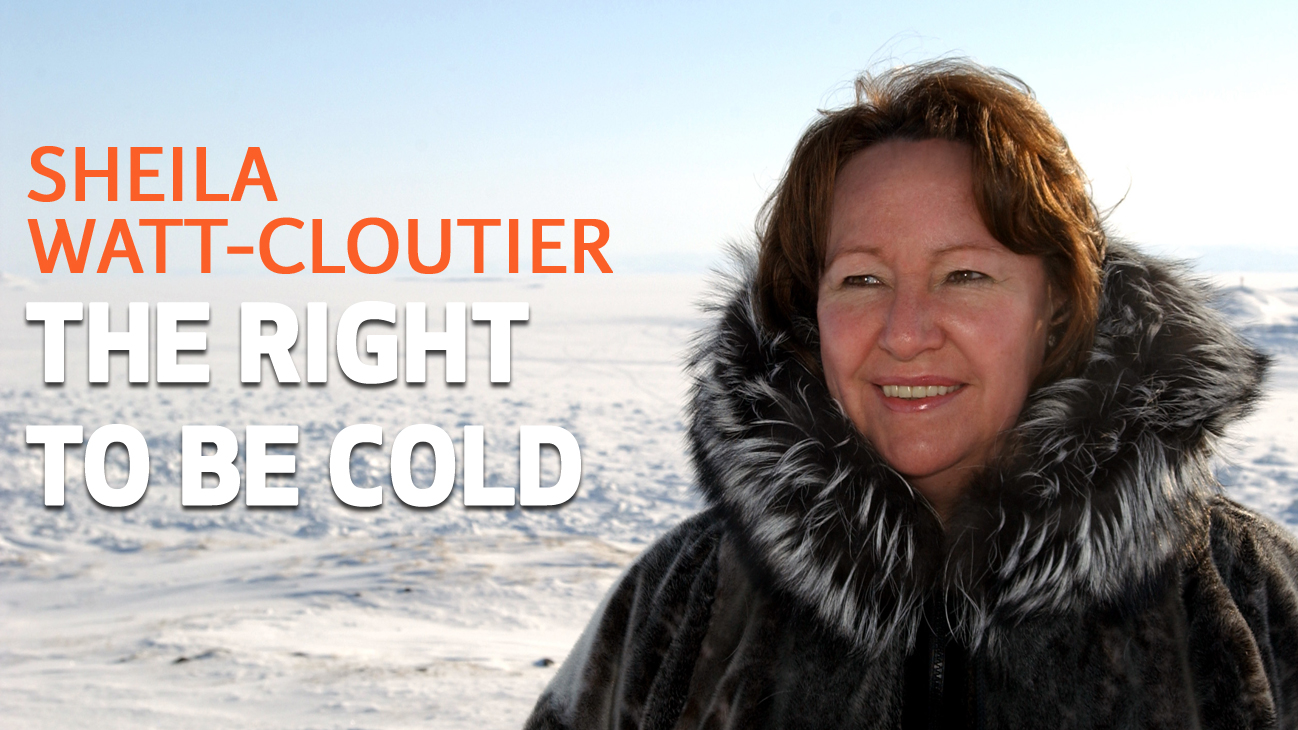Nobel Peace Prize nominee Sheila Watt-Cloutier is in the business of transforming public opinion into public policy. Experienced in working with global decision makers for over a decade, Watt-Cloutier offers a new model for 21st century leadership. She speaks with passion and urgency on the issues of today—the environment, the economy, foreign policy, global health, and sustainability—not as separate concerns, but as a deeply interconnected whole. At a time when people are seeking solutions, direction, and a sense of hope, this global leader provides a big picture of where we are and where we’re headed. CBC recently spoke to Sheila about her new book, Right to be Cold:
Sheila Watt-Cloutier has long advocated for traditional Inuit culture through her work as an academic, a politician and a filmmaker. Now she’s released her highly-anticipated first book: The Right to Be Cold.
“It’s a memoir,” she says. “It’s not a climate change book, per se.”
But in telling her own story, Watt-Cloutier also weave a narrative of climate change and how shifting environmental conditions have affected her and her fellow Inuit.
In effect, the well-known Inuk is putting a human face on a complicated issue.
It’s something Watt-Cloutier says has been a challenge in her international work.
“People around the world know very little about the Arctic. It’s very much about ice. It’s very much about polar bears. It’s very much about other issues besides the human beings who live there.”
By looking at climate change through the effect it has had on hunting culture, Watt-Cloutier hopes readers will think about the issue in a different way.
“Our own government and other governments and businesses around the world are trying to see it as an opportunity for business, for mining, for extracting the oil and gas and so on.”
‘We are an extension of that land’
For Watt-Cloutier, the book is also a plea for people to understand the historical context of colonialism and oppression to the “social, health, judicial problems that [Inuit] face.”
“I didn’t want this just to be an environmental book, because in essence I am not an environmentalist. I am an Inuk who is leading on these issues, worldwide, to address these issues of interconnectedness.”
While she hopes aboriginal people across Canada will relate to the book, Watt-Cloutier says she has a specific message for other Inuit women.
“We need to be more protective of not just our families and children and what is precious to us, but of course the land because we are an extension of that land that we love so much.”

